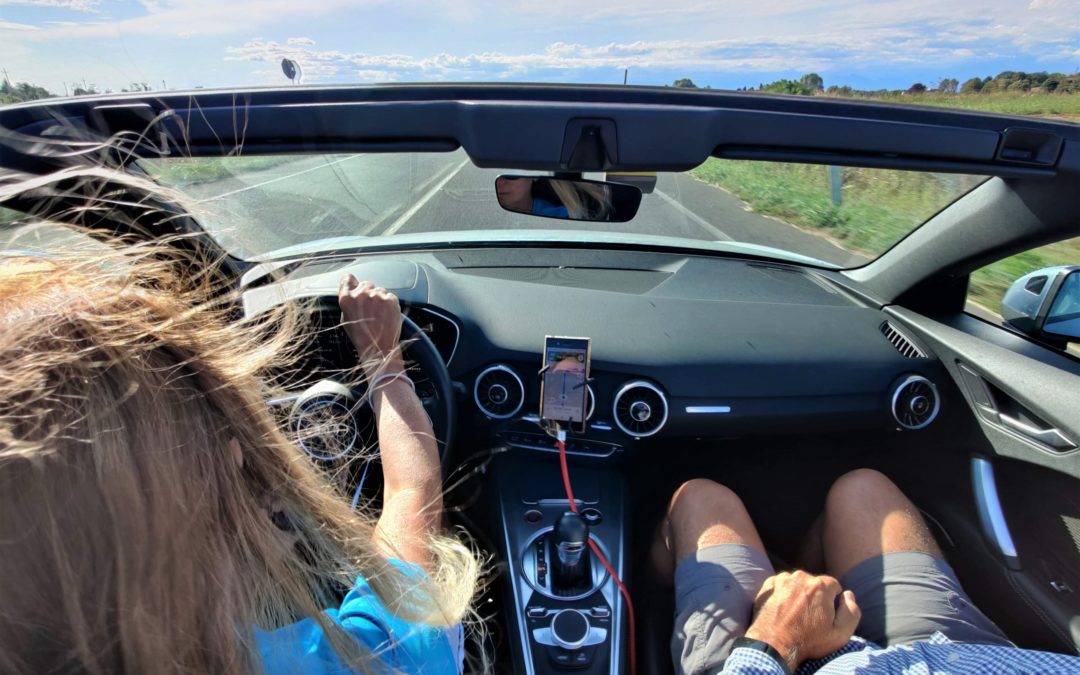Although it can feel like a done deal that you’ll end up with a ticket, there are actually a number of ways to increase your chances of getting off with a warning and keeping the situation as safe as possible. Here is what you should do when you get pulled over for speeding:
- Pull over as soon as it’s safe to do so. Pull over into a well lit, safe place that doesn’t disrupt traffic. Turn off the car, roll down your window, and turn on the overhead light if it’s dark out. Doing so will signal to the officer that you are ready to comply and are considering their safety as well as your own.
- Take a deep breath. Getting pulled over can be very upsetting, and can lead to feelings of anger or fear. However, it’s important to keep yourself as calm as possible to prevent the situation from escalating.
- Remain still, with your hands on the wheel. If an officer sees you rummaging around in your pockets or glove compartment, they might think you’re searching for a weapon. Keep your hands where an officer can see them.
- Keep your seatbelt on. Only leave the car if an officer asks you to.
- Move slowly and carefully. If an officer asks for something like your license, registration, or proof of insurance, don’t make any sudden movements. Announce what you are going to do and wait for permission to do it.
- Be polite, but only speak when spoken to. Anything you say can be used against you, and officers will often try to get you to incriminate yourself by asking questions like “Do you know how fast you were going?” Providing short answers like “yes,” “no,” and “I see” can ensure that you remain cooperative while avoiding admitting anything.
- Do not consent to a vehicle search. The only ways an officer can search your car are if they have probable cause, or if you consent to a search. A simple “I do not consent to a search” will suffice.
- If you are detained or arrested, invoke your right to remain silent and ask for a lawyer immediately. No more conversation. If you have been arrested, you have the right to a phone call. Police are allowed to listen to any call that isn’t to a lawyer.
- Document what happened. After the stop is over, make note of the date, time, location, weather, traffic signals, what happened, and the officer’s name, badge number, and agency. If possible, take photos of any signage, stoplights, or traffic postings in the area.

